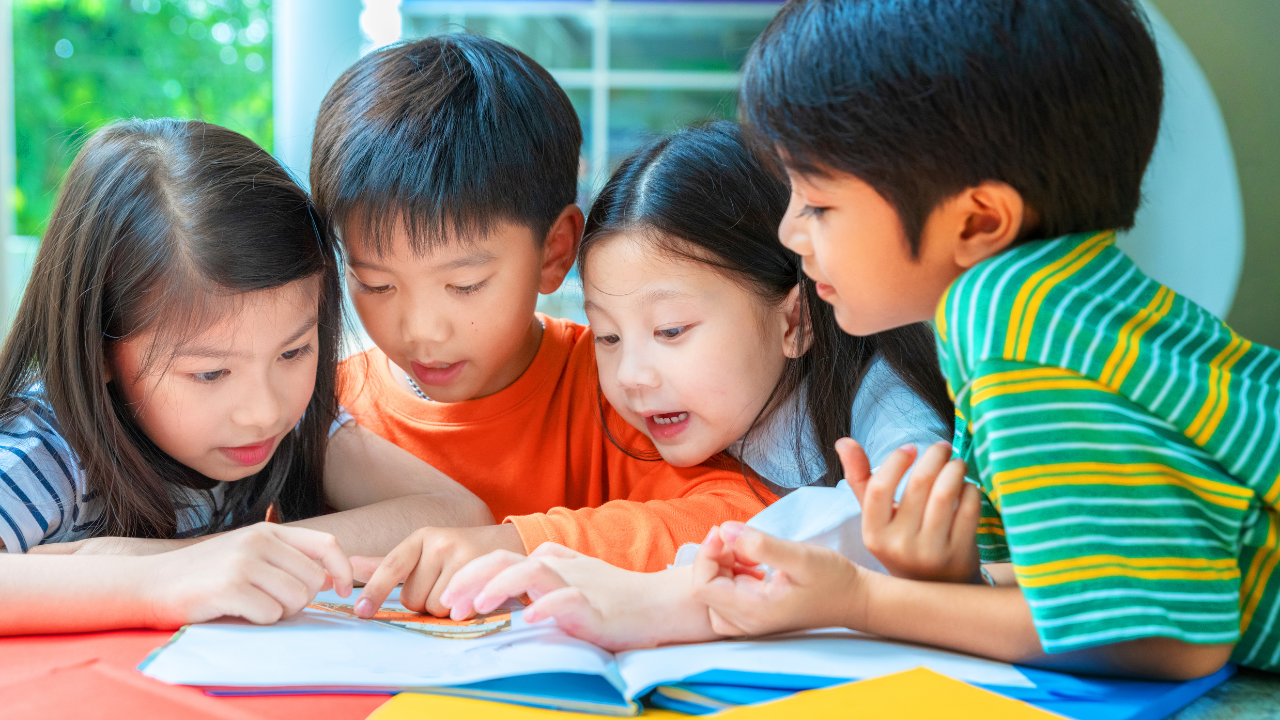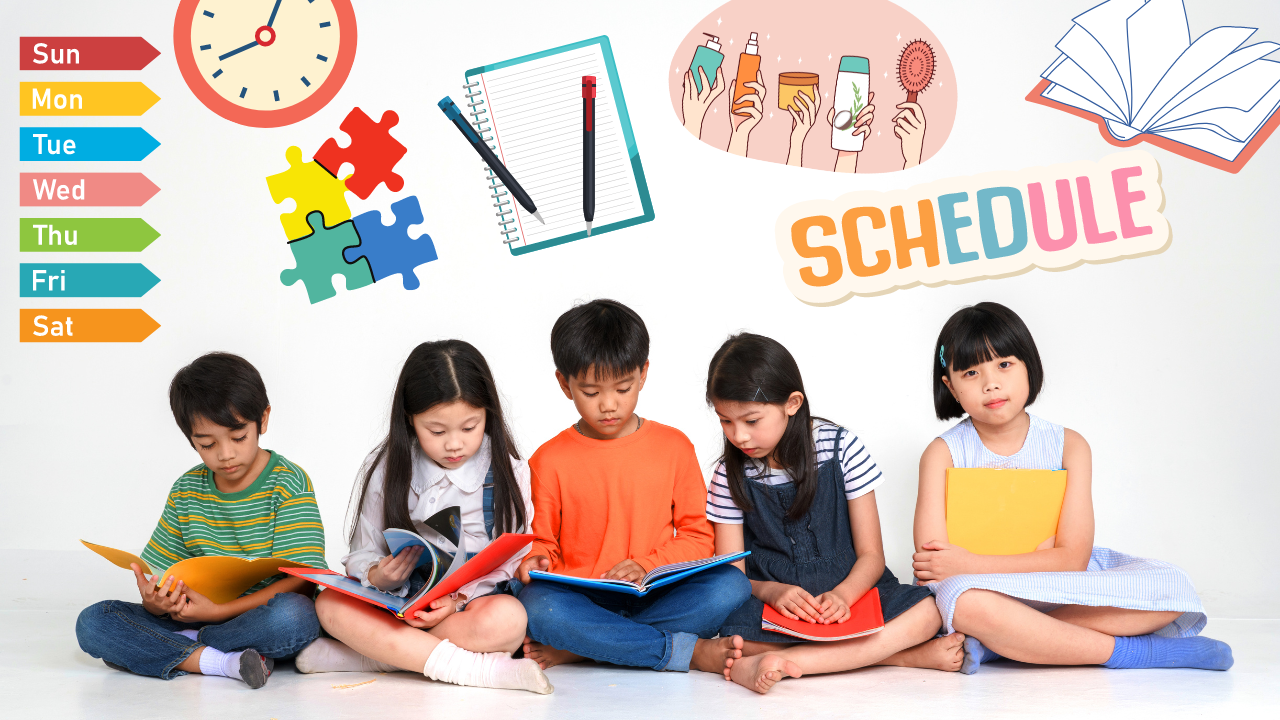In Singapore, kids growing up is about more than just going to school and getting good grades. It’s about becoming the best version of yourself. But, how do we help kids do that?
Through something called holistic development, which means helping kids grow in every way—making friends, handling emotions, staying healthy, and knowing right from wrong.
This holistic approach follows the nation’s high educational standards and societal expectations. It goes beyond textbooks, preparing children thoroughly for all aspects of life, from building strong personal relationships to attaining professional success.
Want to find out more about how this helps kids in Singapore? Let’s dive in and see how it makes a big difference for them now and in the future.
Understanding Holistic Development
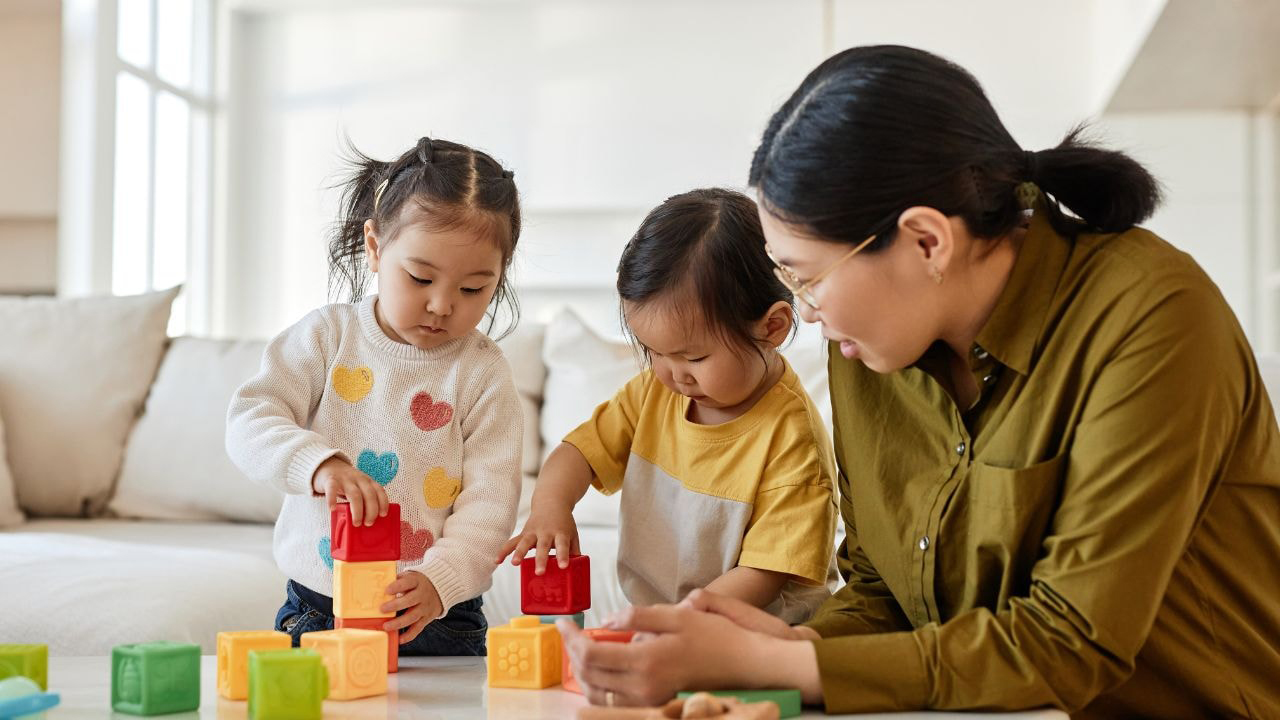
Holistic development in early childhood is essential as it encompasses various aspects of your child’s growth, helping them become well-rounded individuals.
Unlike the traditional method, this comprehensive, holistic development approach enhances all domains of child development, including academic achievement, emotional support, and social and physical health, which is crucial for their long-term well-being.
Understanding Holistic Development
Physical Development: Involves gross and fine motor skills, essential for children’s overall health and agility.
Emotional Development: Focuses on building resilience and emotional intelligence—crucial for their psychological well-being.
Social Development: Enhances their social skills and empathy, forming the basis for strong relationships and effective communication.
Intellectual Development: This helps kids develop critical thinking, problem-solving, and language development skills. These abilities are crucial for handling all sorts of challenges they’ll face as they grow up.
Moral and Spiritual Development: This guides children to learn right from wrong and better understand themselves. These lessons are important for honesty and knowing how to act with others.
The Balanced Approach to Early Childhood Education
A balanced approach to early childhood education (ages 3 to 6) is essential. It ensures that each child’s unique learning styles and needs are addressed, supporting holistic development across cognitive, social, and emotional areas.
Why is this important? Focusing only on subjects like math and reading isn’t enough. Kids also need to learn how to manage their feelings and stay healthy. They can learn some of this on their own, but they do much better when their education helps them grow in all areas.
Also, well-being is foundational for effective learning. Imagine trying to focus on your schoolwork when you have a headache or you’re really tired. It would be pretty tough, right? The same goes for kids. They must feel good, safe, and cared for to do their best in school.
That’s why a balanced educational environment is so important. It helps kids become well-rounded and ready to take on the world. By actively supporting holistic development, we equip future generations for success in every arena.
Understanding Holistic Development
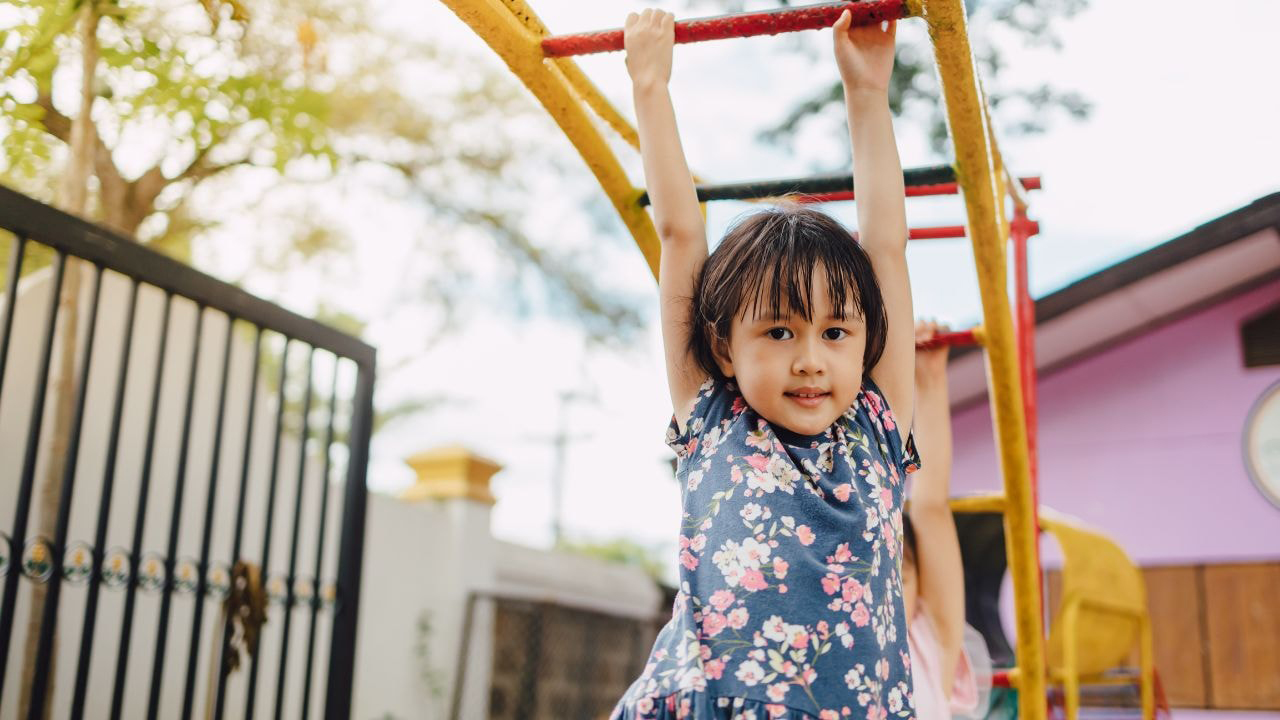
Physical Development in Early Childhood
Why start early? Engaging young children in physical activities such as running and playing is crucial for promoting physical development and enhancing gross motor skills. These fun actions help build strong bodies and fine motor skills—vital for academic achievement and daily life.
Through sports, children not only strengthen their muscles but also learn valuable life lessons about teamwork and perseverance, which foster holistic development fundamental for their overall growth.
Emotional Growth from an Early Age
Social-emotional development is key to helping children manage their feelings effectively in early childhood education. Techniques like open discussions about emotions and mindfulness exercises build resilience and self-esteem.
This emotional support is vital as it equips children to face life’s challenges confidently, enhancing their psychological well-being.
Social Skills and Development
Learning to interact effectively through group activities fosters social-emotional development, teaching invaluable social skills. Early experiences in sharing, communicating, and empathising lay the groundwork for strong, healthy relationships.
These skills are essential for later success in both personal and professional settings, emphasising the importance of social development in holistic education.
Fostering Intellectual Growth
Curiosity and problem-solving are at the heart of intellectual and cognitive development. Language development is crucial in promoting integrated learning experiences and nurturing thinking abilities.
Holistic approaches in early childhood encourage these skills through engaging, playful and holistic learning activities. This makes learning enjoyable and prepares children to apply critical thinking in real-world situations, promoting a comprehensive educational outcome.
Moral and Ethical Development
Teaching the difference between right and wrong is crucial in shaping a child’s character and moral compass, especially during early childhood. Discussions on ethical dilemmas and community involvement help children understand the importance of values and integrity.
This foundation is crucial for navigating complex social environments and upholding societal norms as they grow.
Challenges in Promoting Holistic Development
Balancing Time with Development Needs
For many Singaporean parents, finding enough time after work and school to focus on their children’s holistic development can be challenging. When time is limited, it’s hard to give equal attention to emotional growth, physical health, and learning needs.
School Resources and Focus
Teachers also face challenges. With strict curriculum targets to meet, they often don’t have the resources to give each child personalised attention. Schools might focus more on academic scores and basic skills and less on developing social skills, critical thinking, or emotional strength.
So, where do we go from here? The answer may lie in afterschool student care for your little one.
How Afterschool Student Care Aids Children's Holistic Development
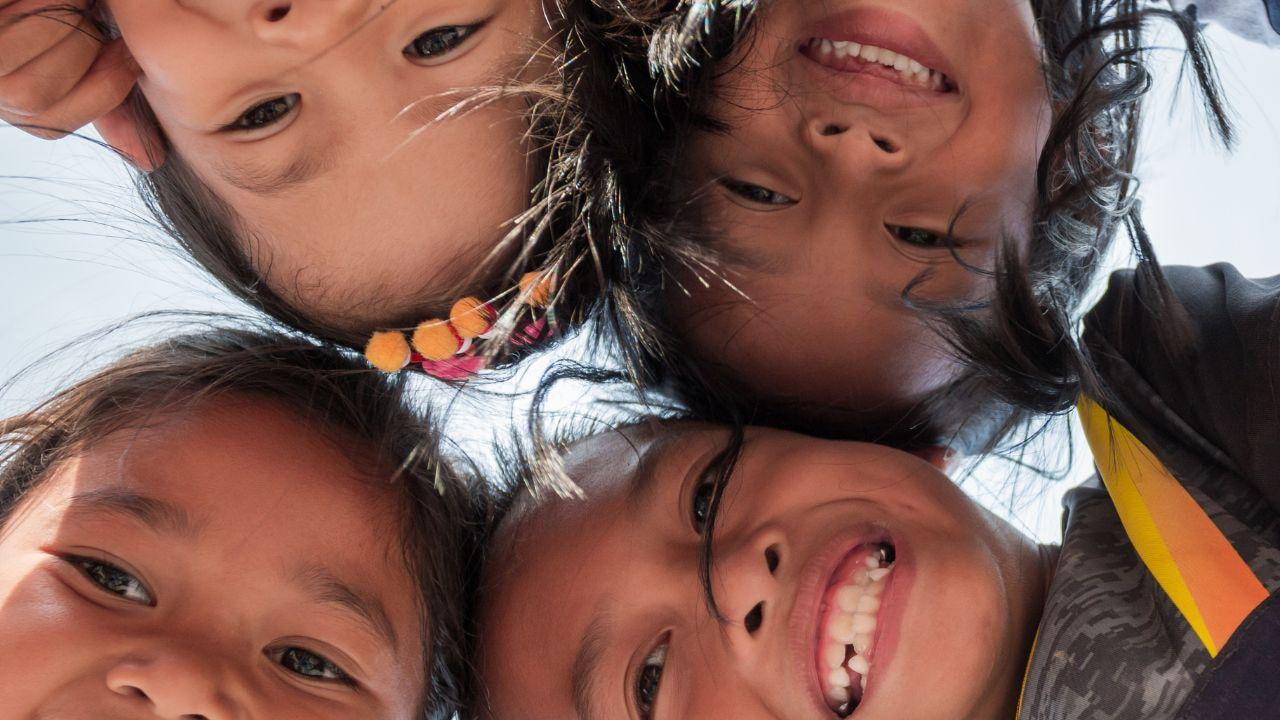
Afterschool student care serves as a bridge between school and home, providing a structured environment where children continue learning and developing after regular school hours.
Each programme differs, but at Out of Box Academy (OBA), our bespoke OBA Curriculum™ is meticulously crafted to nurture every facet of your child’s development, preparing them not just for the next academic step but for life!
Physical Development: At our academy, physical activities and nutrition go hand in hand to support our students’ growth. Engaging in fun outdoor play helps build foundational physical skills, while our nutritious, balanced, and yummy home-cooked meals ensure they have the energy they need.
Emotional Development: Our Meaningful Space™ creates a home-like environment with a supportive 1:10 teacher-student ratio, ensuring personalised attention that fosters emotional resilience and well-being.
Social Development: Daily interactions and structured group activities are designed to build strong friendships and social skills—critical in developing your child’s ability to collaborate and empathise with others.
Intellectual Development: From homework support to enrichment activities like Mandarin Mastery and Technology Skills, we provide a stimulating educational environment that encourages curiosity and intellectual growth—crucial for strengthening cognitive development.
Moral Development: Our curriculum includes forward-thinking subjects such as Current Affairs, which instil values and ethical understanding, shaping young minds to be informed and conscientious global citizens.
Empowering Holistic Growth at Out of Box Academy
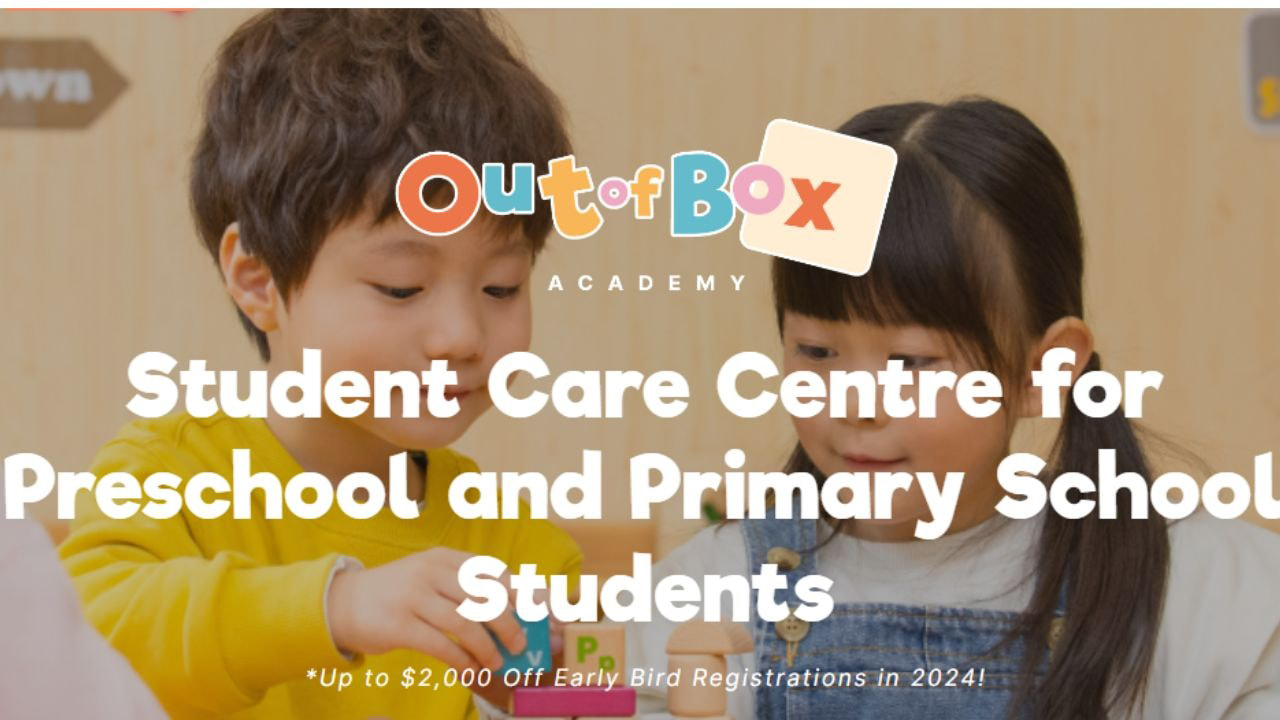
At Out of Box Academy (OBA), we understand the myriad challenges that busy Singaporean parents face in nurturing their child’s development across various domains.
Choosing us for your child’s afterschool care is more than just a practical decision—it’s a commitment to support holistic development, ensuring comprehensive growth in both personal and academic spheres.
Take the next step in your child’s academic journey with OBA. Enrol your child in an afterschool programme that helps them reach their full potential!
Sign up for a tour today and save up to $2,000 on your first term with OBA! Don’t miss this opportunity to invest in your child’s future!


